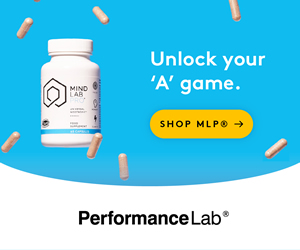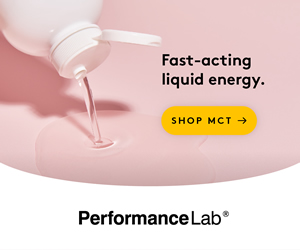Health & Wellness
Do You Really Need Astaxanthin?
Discover if you need astaxanthin! Learn about its antioxidant power, health benefits, natural vs synthetic forms, dosages, and how to choose the right supplement.
Have you ever wondered if your daily supplements are truly making a difference in your overall health? Among the myriad of supplements available in today’s market, one that has been receiving significant attention is astaxanthin. You might have heard about it in health magazines, wellness blogs, or even from your healthcare provider. But the question remains: do you really need astaxanthin?
What is Astaxanthin?
Astaxanthin is a powerful antioxidant that belongs to the carotenoid family. You might find it naturally in microalgae, yeasts, salmon, trout, krill, shrimp, crayfish, and other sea creatures. Its distinct red color is what often gives these organisms, especially salmon, their vibrant hues.
How Does it Differ from Other Antioxidants?
Astaxanthin stands out because its antioxidant activity is significantly stronger than many others you might be familiar with, such as Vitamin C, Vitamin E, and beta-carotene. This enhanced activity can play a crucial role in neutralizing free radicals and protecting your cells from oxidative stress.
| Antioxidant | Strength Compared to Astaxanthin |
|---|---|
| Vitamin C | 6,000 times weaker |
| Vitamin E | 550 times weaker |
| Beta-carotene | 300 times weaker |
Natural vs Synthetic Astaxanthin
When choosing astaxanthin, you have to decide between natural and synthetic forms. Natural astaxanthin, derived typically from microalgae like Haematococcus pluvialis, is preferred due to its superior antioxidant properties. On the other hand, synthetic versions may not offer the same benefits and can sometimes have side effects due to added chemicals.
Health Benefits of Astaxanthin
Learning about the potential health benefits might help you understand why astaxanthin is becoming increasingly popular. Here’s a breakdown of the primary advantages:
Boosts Skin Health
Astaxanthin’s antioxidant capabilities can play a vital role in skin health. With daily exposure to UV rays and pollution, your skin is likely to experience oxidative stress. Supplementing with astaxanthin can protect against this damage, helping to reduce signs of aging like wrinkles and age spots.
Enhances Eye Health
Just as it protects your skin, astaxanthin can also safeguard your eyes. The eyes are particularly vulnerable to oxidative stress, especially with increased screen time in the digital age. Astaxanthin has been shown to support retinal health, reduce eye fatigue, and possibly lower the risk of age-related macular degeneration.
Supports Heart Health
Your heart can also benefit from the antioxidant properties of astaxanthin. Studies suggest that it aids in improving blood flow and lowering oxidative stress and inflammation, thereby supporting overall cardiovascular health.
May Increase Exercise Performance
If you are into fitness, you might find astaxanthin beneficial for improving exercise performance. Its anti-inflammatory and antioxidant properties help in reducing muscle soreness and enhancing stamina, allowing you to work out more effectively and recover faster.
Potential Cancer Prevention
While research is still ongoing, some studies have indicated that astaxanthin could play a role in cancer prevention. Its powerful antioxidant activities may inhibit cancer cell growth and reduce metastasis, providing a promising complementary option for cancer therapies.
Strengthens Immune System
Astaxanthin’s immune-boosting properties can’t be overlooked. It can enhance the immune response, making your body more resilient to infections and diseases.

Dosage and How to Take It
Knowing the correct dosage is crucial for maximizing the benefits while avoiding potential side effects.
Recommended Dosage
For general health and wellness, the typical recommended dosage ranges from 4 to 12 mg per day. However, for specific health concerns, you might need to consult a healthcare provider for personalized advice.
| Purpose | Daily Dosage Range |
|---|---|
| General Wellness | 4-6 mg |
| Skin Health | 6-8 mg |
| Eye Health | 6-12 mg |
| Fitness Performance | 4-12 mg |
Best Time to Take Astaxanthin
Astaxanthin is fat-soluble, meaning it should ideally be taken with a meal containing healthy fats to enhance absorption. Many prefer taking it in the morning with breakfast, but there’s no strict rule about timing.
Potential Side Effects
Even though astaxanthin is generally safe, you should be aware of possible side effects. Some individuals may experience:
- Digestive Issues: Mild stomach discomfort or bowel irregularities can occur in some cases.
- Skin Pigmentation: High doses might lead to a slight orange tinge in the skin, similar to the effect of consuming large amounts of carotene-rich foods.
Who Should Avoid Astaxanthin?
- Pregnant or Nursing Women: It’s best to consult a healthcare provider before starting any new supplement.
- Individuals with Seafood Allergies: Since astaxanthin is often derived from marine organisms, those with seafood allergies should exercise caution.
Choosing the Right Astaxanthin Supplement
With countless options on the market, selecting the right astaxanthin supplement can be daunting. Here are some tips to help you make an informed choice:
Check the Source
Opt for natural astaxanthin sourced from microalgae like Haematococcus pluvialis. This ensures you’re getting a product with superior antioxidant properties.
Read the Label
Ensure the supplement is free from artificial additives, fillers, or unwanted chemicals. Look for reputable brands with transparent labeling.
Sustainability and Ethics
Consider brands that prioritize sustainable and ethical practices. This not only ensures a higher quality product but also supports environmental conservation efforts.
Frequently Asked Questions
Even with all this information, you might still have questions. Here are some commonly asked questions about astaxanthin:
Is Astaxanthin Safe for Long-Term Use?
Studies suggest that astaxanthin is safe for long-term use when taken at recommended dosages. Always consult with a healthcare provider for prolonged usage, especially if you have existing health conditions.
Can I Get Astaxanthin from Food Alone?
While astaxanthin is present in certain foods like salmon and shrimp, achieving therapeutic dosages through diet alone can be challenging. Supplements provide a more concentrated and convenient source.
How Quickly Will I Notice Benefits?
Typically, it can take a few weeks to notice the benefits of astaxanthin, especially for skin and eye health. Consistency is key for optimal results.
Conclusion: Do You Really Need Astaxanthin?
Ultimately, whether you need astaxanthin depends on your individual health goals and needs. From enhancing skin and eye health to supporting your heart and immune system, the benefits are compelling. However, consult with a healthcare provider to determine if it aligns with your specific health requirements and to guide you on the right dosage. Armed with this knowledge, you’re better equipped to make an informed decision about incorporating astaxanthin into your wellness routine.
















